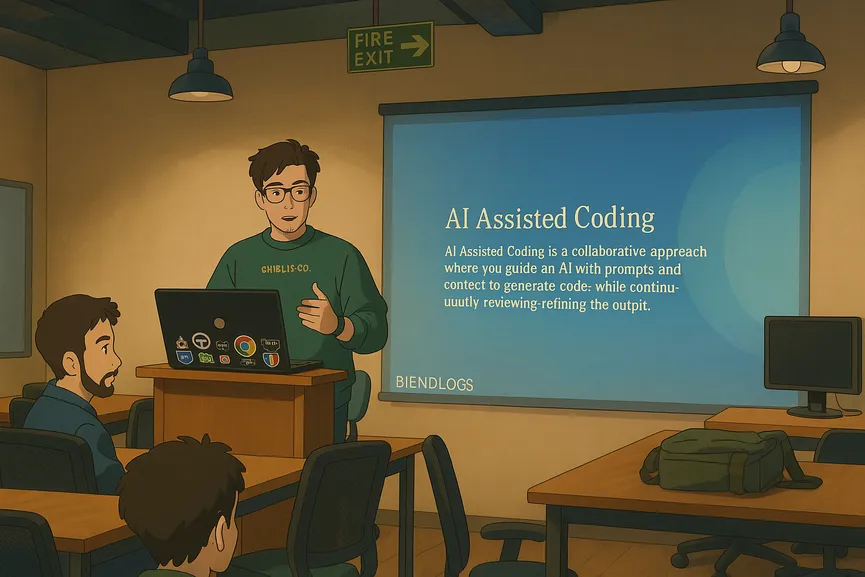Last week I had the pleasure of presenting at Expert Talks Bengaluru on AI‑Assisted Coding, a new paradigm where developers guide AI to write code through prompts and context, then review and refine the output. If you missed the live session, you can catch the full talk on YouTube:

Why AI‑Assisted Coding?
Traditional software development often follows a linear path: requirements → manual coding → code review → deployment. With AI‑Assisted Coding, we shift that model:
- Context & Prompting
You provide the AI with a clear spec—business rules, tech stack, edge cases—and craft precise prompts. - AI Generates Code
The AI writes the boilerplate, business logic, or even tests for you. - Developer Oversight
You review, tweak, and integrate the generated code, ensuring it meets quality standards.
Key Takeaways from the Talk
- Developer as Orchestrator: We evolve from line‑by‑line coders into product engineers who frame problems, define specs, and let AI handle the heavy lifting.
- Prompt Engineering Matters: The clarity and relevance of your prompts directly affect AI output—too vague and you get generic code; too much context and you risk hallucinations.
- Model Selection: Use reasoning‑capable models for brainstorming and spec creation, then switch to code‑optimized models for implementation.
- Pitfalls to Watch:
- Hallucinations: Break large features into smaller slices to avoid unexpected AI “creativity.”
- Quality Assurance: Always review and test AI‑generated code—AI is an assistant, not a replacement.
Deep Dive: When AI‑Assisted Coding Gets Tricky
AI‑Assisted Coding streamlines a lot of work, but it isn’t magic. You still have to wrestle with:
- Prompt complexity: Crafting prompts that are neither too vague nor too bloated
- Context‑window limits: Avoiding hallucinations by slicing large features into smaller chunks
- Model quirks: Understanding that different LLMs have different strengths and weaknesses
- Ongoing maintenance: Ensuring your AI‑generated code evolves with your product
For a deeper look at these challenges—and practical tips on how to overcome them—check out my related post: Why coding with LLMs can be harder than you think
